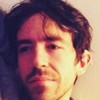Photos of Omar Mateen taken from his MySpace account
Advertisement
Advertisement
Beverly Tillery: Unfortunately, hate violence is still very common. AVP coordinates a national coalition of anti-violence programs, and we track incidences of hate violence and other forms of violence against LGBT people. We are all seeing high numbers of instances of hate violence all across the country. It's still a reality for a lot of LGBT people. One of the things that we're seeing is that violence is particularly impacting LGBT communities of color, LGBT youth, transgender, and gender nonconforming people especially, and transgender women of color/women of color especially. The most vulnerable among us.What's causing this violence?
A lot of things. We need to talk about the larger questions of what behavior is considered acceptable and what's not acceptable. I would say that the climate of violence is encouraged by the anti-LGBT laws that are sweeping this country. People are saying, "We think this is a group of people that does not deserve to have rights, and we're going to do whatever we can to make sure they don't have rights." Which is really the same as saying, "We don't see these people as the same as us, as fully worthy and human." This tells people that we're not protecting this group, and that it's OK to be violent to LGBT people.
"We want to change attitudes and the way people see LGBT people. The answer is not to lock everybody up who is not supportive or hasn't had an opportunity to deal in a really deep way with their homophobia."
Advertisement
I don't want to make assumptions about this case, but I will say that if you are living in a society that tells you that it is not OK to be LGBT, whether you're on the outside of the community or part of the community, you're getting those messages. And those messages are powerful.That doesn't mean that you're necessarily going to be violent. But it is certainly the case that we all are absorbing those messages of hate. How that plays out for somebody who may be questioning their identity? Well, it doesn't make you feel like the world is a safe place for you! We know that youth who do not get the support of their families and their communities are at risk for dangerous behaviors, and they're at risk to end up on the street. It puts us at risk when we are trying to figure out who we are, and society tells us that what we think we are is not good. So it does contribute to again a climate of both lack of security for LGBT people and violence.
What do you think about hate-crimes legislation as a way to combat anti-queer violence?In many of these situations, having someone just stand up and say this is not OK would make a huge difference.
We really caution against any solution that contributes to criminalizing more people in our society. The LGBT community and communities of color are already devastated by criminalization, and we do not want to add any more people to the list of groups who are being overly policed, overly criminalized.We want to change attitudes and the way people see LGBT people. The answer is not to lock everybody up who is not supportive or hasn't had an opportunity to deal in a really deep way with their homophobia. We really have to figure out how do we dismantle systems of oppression and hate, because that's the only way we're going to be able to build a better society and communities where we can all live together safely.What can people who are concerned about anti-queer violence do?
There is so much that is happening in our country that we all need to pay attention to! I think it is in some ways easy for people to get distracted by saying that this was such a huge tragedy, and there is nothing anyone could have done to prevent it.But violence is happening every day, and it's happening in all kinds of ways, throughout our communities, and there are ways people can intervene. People can stand up and let survivors of this violence know that they are not alone, that other people are watching and paying attention. In many of these situations, having someone just stand up and say this is not OK would make a huge difference.Follow Hugh Ryan on Twitter.
